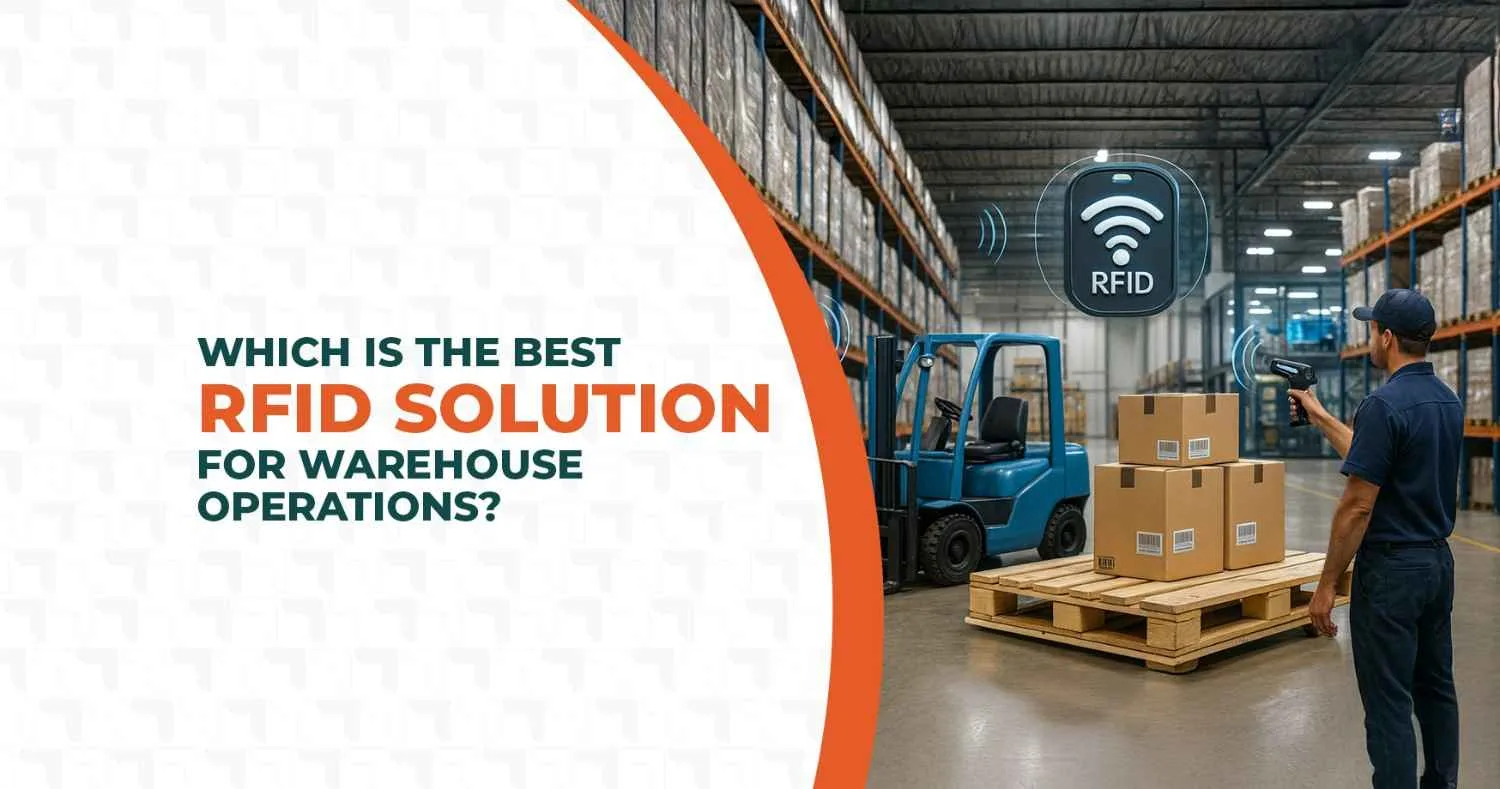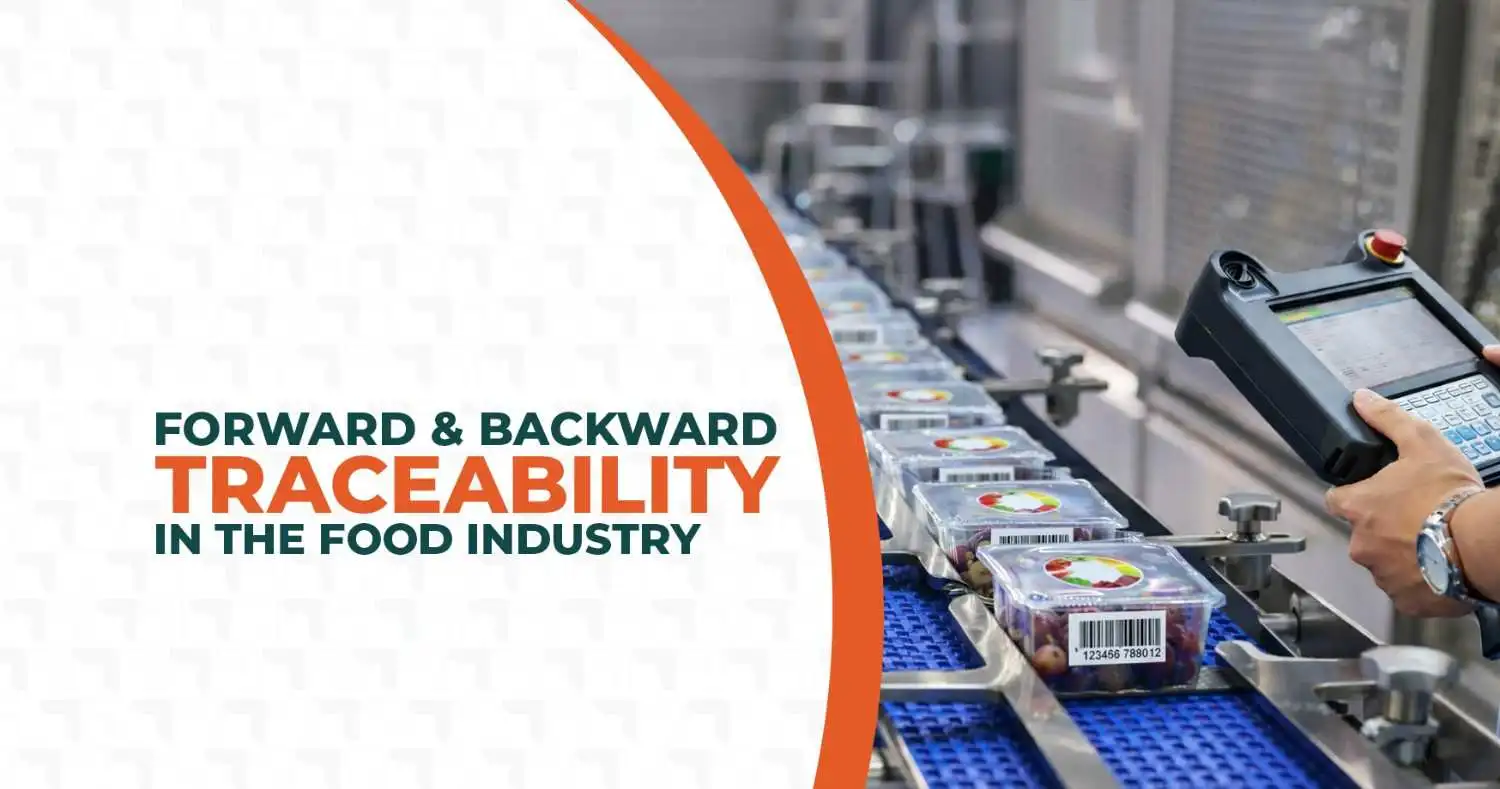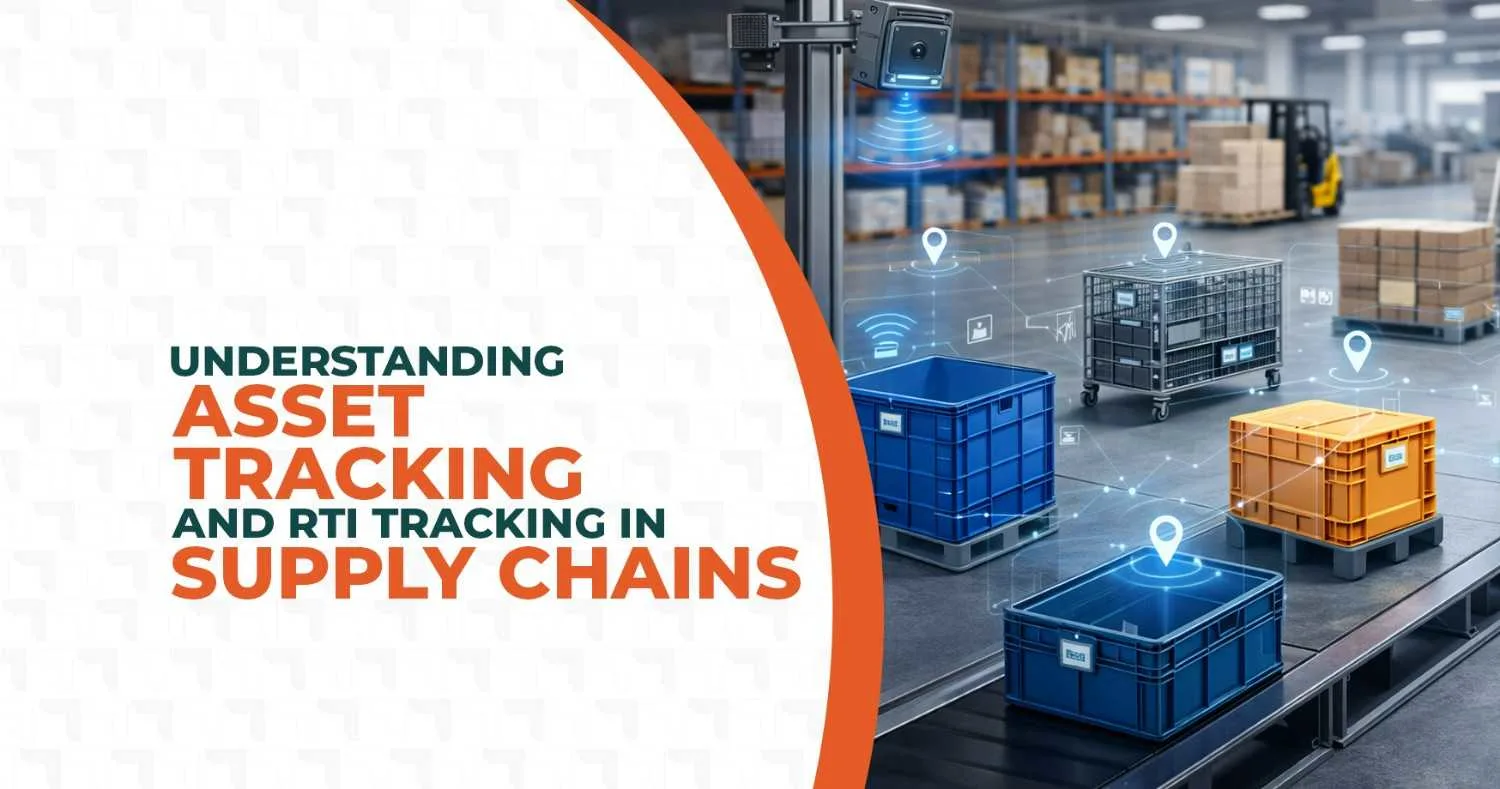
Which is the Best RFID Solution for Warehouse Operations in 2025?
Warehousing has always carried its fair share of pressure, but in 2025, the load is heavier. Customers want next-day deliveries, businesses demand leaner costs, and leaders expect every decision to be backed by data. To meet these expectations, RFID has become the technology of choice. However the decision doesn’t end at adoption.
With multiple RFID solutions offering different levels of precision, scalability, and integration options, choosing the right system is like the need of the hour for warehouse operations.
What Makes an RFID Solution the Best in 2025?
The strongest RFID programs fix everyday pain without adding to the clutter. They shorten count cycles, stop mispicks before they travel to dispatch, and surface risks the moment they appear. And if we are to decide a parameter that dictates a RFID solution to be the best, it must fulfill the following list of factors:
1. Real-Time Inventory Tracking
You should see every receipt, movement, and dispatch as it happens, not after a manual scan. RFID readers and portals capture tag data automatically and feed it to a central platform so teams can act in the same shift. This is where RFID tracking technology moves from record keeping to live control.
2. High Read Accuracy
Aim for 98 to 99.5 percent read accuracy even around metal racks, liquids, and stacked pallets. Accuracy at this level removes recounts, improves cycle count confidence, and keeps replenishment rules honest.
3. Seamless Integration
Your warehouse RFID system must plug into WMS and ERP so data flows both ways. Material masters, GRNs, transfer orders, pick confirmations, shipments, and invoices should sync without custom spreadsheets.
4. Scalability
Start with one site and grow to a national network without rewriting the solution. Architecture should support more docks, zones, readers, and users while keeping performance steady.
5. Rugged Hardware
Warehouses in India face heat, dust, humidity, and long operating hours. Choose readers, antennas, printers, and tags that are built for tough conditions and have accessories like portals, tunnels, and custom mounts that fit your layout.
6. AI-Driven Insights
Market adaptation and dominance will need more tracking KPIs and quantified deliverables. And that includes warehouse operations and the dependent supply chain system. Hence, you need more than just tracking. Use predictive alerts for low stock, dwell time breach, and congestion at putaway zones. AI can highlight red flags, suggest slotting changes, and recommend labor moves within the hour.
If you’re looking for an RFID warehouse solution in India that can scale across regions, these are the non-negotiables.
How Bar Code India Provides the Best RFID Solutions for Warehouses?
For over two decades, Barcode India has enabled businesses across industries to digitize and automate supply chains. Our expertise positions us as the provider of the best RFID solution for warehouse operations in 2025. And we continue to deliver by ensuring the following factors in our offerings:
1. End-to-End RFID Ecosystem
BCI offers the complete portfolio in one place, making it a hassle-free experience for customers. Readers, antennas, printers, tags and ribbons, RFID tunnels and portals, enterprise tablets, and the software layer that ties it all together, everything is provided under one roof. Integrations cover warehouse management systems, ERP, and automation systems so process data is consistent from receiving to invoicing.
2. Designed for Indian Warehousing Conditions
Hardware and fittings are selected for heat, dust, and high throughput docks. Options include multiple port readers, circular or linear antennas, vehicle mounted devices, and zone certified tablets to keep uptime high in mixed environments of metal, liquids, restricted zones, and uneven lighting.
3. 99%+ Accuracy with RFID Readers
BCI’s RFID readers - Dristi make sure every tag is read where it should be, without errors or cross reads. This accuracy means stock counts match in warehouses, trucks move faster at yards, assets stay visible on shop floors, and billing runs smoothly at retail counters. With strong connectivity and rugged design, they keep your operations running reliably, even during the busiest shifts.
4. Fast Deployment & Nationwide Support
BCI uses a pilot to scale playbook that covers site survey, RF design, integration, user training, and live support. A nationwide service network backs the system with SLAs, spare pools, and preventive maintenance so gains sustain at scale.
Real-World Impact of Our RFID Deployments
BCI’s RFID tracking technology has proved itself across industries, geographies, and use cases. Below are examples that demonstrate how different businesses solved pressing warehouse and asset management challenges with measurable outcomes.
1. Automating Warehouse Operations for a Global Cables and Wires Manufacturer
About the Client
A leading multinational in cable and connection technology, producing cables, wires, and integrated solutions.
Challenges
Warehouse operations were largely manual with activities like barcode scanning, stock counting, reconciliation, and dispatch processes were time-consuming, error-prone, and inefficient. This created delays, inaccuracies, and high operational costs.
BCI’s Solution
BCI deployed an RFID-enabled Warehouse Management System (WMS) integrated seamlessly with the client’s SAP S4 ERP. RFID tags were attached to cable reels, bundles, and boxes, while fixed readers and handheld scanners captured movement data automatically at every stage: goods receipt, putaway, transfers, picking, and dispatch.
- RFID portals at entry/exit gates automatically logged receipts and dispatches into SAP in real time.
- Smart shelves and handheld readers enabled instant inventory counting without manual scanning.
- Automated alerts flagged misplaced or missing stock before it affected dispatches.
Impact
- End-to-end warehouse operations, right from goods receipt to dispatch; became fully automated, cutting human error out of the process.
- Near real-time visibility of inventory allowed planners to reconcile data instantly within SAP.
- Manual effort was reduced drastically, with barcode scanning replaced by batch-level RFID reads in seconds.
- The RFID setup was designed as a scalable platform, ready to handle future SKUs, facilities, and expansion plans.
2. Dispatch Validation Automation
About the Client
A global fast-fashion retailer with 5,000+ stores in 74 countries.
Challenges
Dispatch validation at their warehouse was manual. Each carton had to be opened or scanned individually, which slowed down shipments, increased manpower dependency, and still left room for packing errors and wrong deliveries. For a retailer built on speed, these delays affected store availability and customer satisfaction.
BCI’s Solution
After a three-month study and pilot run, BCI implemented its Inventory Intelligence solution powered by RFID. Each item and carton carried an RFID tag linked to the order in the system. RFID portals at packing and shipping zones automatically validated whether every item in the order was present without opening the box.
- Dispatch stations flagged any carton with a missing or excess item instantly.
- Orders were validated in bulk within seconds, rather than one by one.
- Integration with the brand’s order system ensured live status updates for every shipment.
Impact
- Achieved 100% dispatch validation accuracy, with zero packaging errors across shipments.
- Significantly faster processing speed, cutting down labor requirements and shipment delays.
- Built end-to-end control and transparency in order fulfillment, strengthening trust across the retail supply chain.
Explore what is the purpose of an inventory management solution and how they can integrate with the existing workflows in your supply chain.
Things to consider when choosing an RFID Solution Provider?
Choosing the best RFID solution for warehouse operations in 2025 won’t simply end with buying readers, tags, and software. Businesses are going to want to build a system that can keep pace with their growth, eliminate inefficiencies, and transform data into actionable intelligence.
Many companies in India have learned the hard way, i.e, using an RFID deployment that looks good on paper but fails in integration, durability, or support ends up being an expensive pilot rather than a scalable success story.
That’s why evaluating an RFID solution provider is a decision that must make real business outcomes more apparent, other than just discussing technology. It’s about trust, future-readiness, and the ability to deliver real business outcomes.
1. Integration
Having the most advanced RFID tags in your warehouse won’t give you much of a leverage within the supply chain part of your business if you are still updating your ERP manually every evening. It will result in blind spots, delays, and duplicated effort. The real power of an RFID warehouse solution in India lies in its ability to integrate with your existing platforms like WMS, ERP, or supply chain applications, so information flows in real time without human intervention.
How BCI Delivers
BCI specializes in seamless integration with third-party systems including SAP S4, Oracle, and other enterprise solutions. Our RFID middleware ensures synchronization of material masters, GRNs, putaway, transfers, dispatches, and invoices. The outcome: a single source of truth, where every movement in your warehouse reflects instantly across your enterprise systems.
2. Hardware Quality
RFID hardware should withstand demanding warehouse and industrial environments. That also includes the supporting tools like antennas, readers, and tags that perform in demanding environments. They must perform their best even within settings having extreme heat, dust, or high throughput scanning points. Explore our RFID Reader - Dristi
How BCI Delivers:
BCI’s RFID hardware portfolio is engineered for reliability. From handheld, fixed, and vehicle-mounted readers to RFID printers and antennas, our devices can withstand tough warehouse conditions. We provide smart labels, ribbons, and hard tags for diverse applications, ensuring accurate reads every single time.
3. Software Capabilities
RFID hardware may capture data, but without powerful software, it’s like having a camera without a lens. Features such as real-time tracking, analytics, exception alerts, and reporting are what make the difference between raw RFID signals and intelligent warehouse decision-making.
How BCI Delivers:
Using our RFID tech within your warehousing operations means no more waiting for manual reconciliation; managers can spot issues as they happen and act on them immediately. For businesses seeking RFID inventory management in India, this intelligence layer is the true differentiator.
4. Scalability
A pilot RFID deployment may work in one facility. But when you try to expand to five warehouses, the system collapses under its own weight. Scalability is the ultimate test of whether your RFID system is future-ready.
How BCI Delivers:
BCI designs every deployment with scalability in mind. Whether you’re starting with a pilot RFID warehouse solution or planning a multi-location rollout, our modular design ensures easy expansion. From adding new tags and SKUs to connecting with IoT or AI-enabled RFID integrations, growth happens seamlessly, without tearing apart your existing setup.
5. Support and Maintenance
Even the best RFID technology can falter without consistent support. Imagine a breakdown during peak dispatch season with no service team available; the costs could outweigh the savings RFID promised in the first place.
How BCI Delivers:
BCI offers end-to-end support and preventive maintenance, ensuring your system runs smoothly day after day. With India-wide service coverage and a global footprint, our dedicated teams provide on-demand troubleshooting and proactive care. Businesses trust us because we don’t just install RFID, we stay committed to keeping it reliable and leverage the benefits of RFID technology for your process-wide ease.
Conclusion – Your Next Step Towards a Smarter Warehouse
Across the logistics and manufacturing sectors, the sentiment is clear: traditional warehouse practices can no longer keep up with modern supply chain demands. Businesses struggle with delayed inventory visibility, manual inefficiencies, and the rising cost of errors. The industry’s direction is moving toward automation, real-time tracking, and data-driven decision-making.
What resolves this gap is an RFID system that doesn’t just provide visibility but integrates with existing workflows and set of technologies (WMS/ERP), scales with seasonal demand, and reduces dependency on manual checkpoints.
That’s where BCI’s RFID warehouse solutions make the difference. Our systems are built to:
- Track inventory in real time across receiving, storage, and dispatch.
- Reduce human error by minimizing manual checks.
- Integrate smoothly with ERP, control systems and other third-party applications.
- Scale with your operations without major process disruptions.
Instead of generic promises, BCI delivers practical improvements that warehouse teams can see on the floor: faster counts, fewer errors, and better stock visibility.
If your next goal is a smarter, leaner, and more connected warehouse, it’s time to take the next step. Talk to our experts today and discover how Bar Code India’s RFID warehouse solutions can transform your operations.
FAQs
Q1. What is the best RFID solution for warehouses in 2025?
The best RFID solution isn’t a single product but a tailored system. In 2025, warehouses benefit most from hybrid RFID setups combining UHF passive tags for inventory and active tags for high-value assets, all integrated with AI-driven dashboards for predictive insights, real-time tracking, and reduced manual dependency.
Q2. Why is RFID important for warehouse automation?
RFID eliminates the bottleneck of manual barcode scanning. It provides continuous visibility of stock movement without line-of-sight checks, enabling faster picking, lower shrinkage, and accurate replenishment cycles. In automated warehouses, RFID becomes the connective tunnel between conveyors, robots, and ERP systems, which as a result ensures synchronized, error-free, and traceable operations.
Q3. How accurate are modern RFID systems?
Modern RFID systems achieve 95–99% read accuracy, depending on tag placement, reader density, and warehouse environment. With advanced antenna arrays, AI-based signal filtering, and interference management, accuracy is significantly higher than barcode checks, which average 80–85% in live conditions. This precision directly translates into lower stock discrepancies.
Q4. Can RFID work in extreme warehouse conditions?
Yes. RFID tags are now engineered for rugged use. They are resistant to dust, moisture, chemicals, and sub-zero or high-temperature ranges. Specialized on-metal tags are used in cold storage, while high-durability tags survive industrial heat. Modern readers adapt frequency and power settings, ensuring consistent performance even in tough Indian warehouse conditions.
Q5. How quickly can Barcode India deploy RFID in a warehouse?
Deployment timelines vary by warehouse size and integration scope. For mid-sized warehouses, Barcode India can roll out RFID in 4-8 weeks, including site surveys, hardware installation, software integration, and staff training. Large-scale deployments may take longer, but modular rollout ensures quick ROI from the very first phase.
Q6. What ROI can I expect from an RFID solution?
Depending on the scale of operations, warehouses adopting RFID generally recover costs anywhere within 3-15 months. ROI comes from fewer stockouts, reduced shrinkage, faster order fulfillment, and optimized labor usage. Barcode India’s deployments consistently show measurable benefits like - improvement in inventory accuracy and drop in order-processing, conditions that directly boost customer satisfaction.
Q7. How does AI enhance RFID tracking?
AI transforms RFID from a visibility tool into a decision-making engine. It predicts demand patterns, automates replenishment alerts, detects anomalies in item movement, and optimizes storage layouts. Instead of simply “tracking,” AI-enhanced RFID empowers warehouses to act proactively, reducing waste, downtime, and operational inefficiencies.
Q8. How is RFID different from barcode systems?
Barcodes require line-of-sight scanning and are prone to human error. RFID works wirelessly, capturing hundreds of items simultaneously within seconds. Unlike static barcodes, RFID tags can store dynamic data and withstand harsh conditions. For warehouses that are preparing to scale in the near future, RFID ensures speed, automation compatibility, and future-proof visibility.
Q9. Can RFID track both inventory and assets?
Absolutely. Inventory items can be tracked with cost-effective passive tags, while assets like forklifts, pallets, or returnable containers are tagged with durable active/semi-passive RFID. This dual-layer approach ensures complete visibility while creating a new scope for fast cycle counts for stock, condition and movement tracking for equipment, cutting down losses and misplacements.
Q10. Is RFID suitable for Indian warehouses?
Yes. Indian warehouses face challenges like dust, high temperatures, and uneven connectivity. RFID is proven to work in these conditions, provided the right tags and infrastructure are chosen. Barcode India customizes deployments, whether for large 3PL hubs, mid to large scale manufacturers, or smaller regional warehouses; ensuring adaptability, scalability, and cost-effectiveness in the Indian ecosystem.



